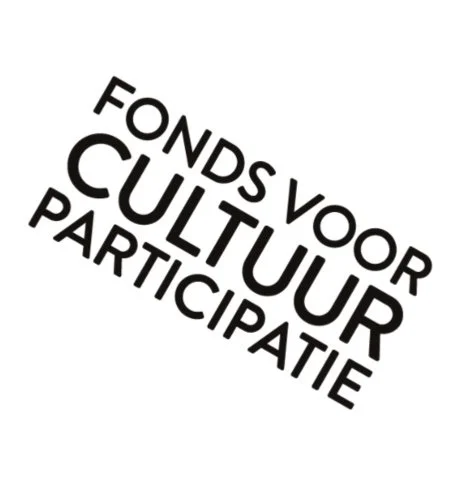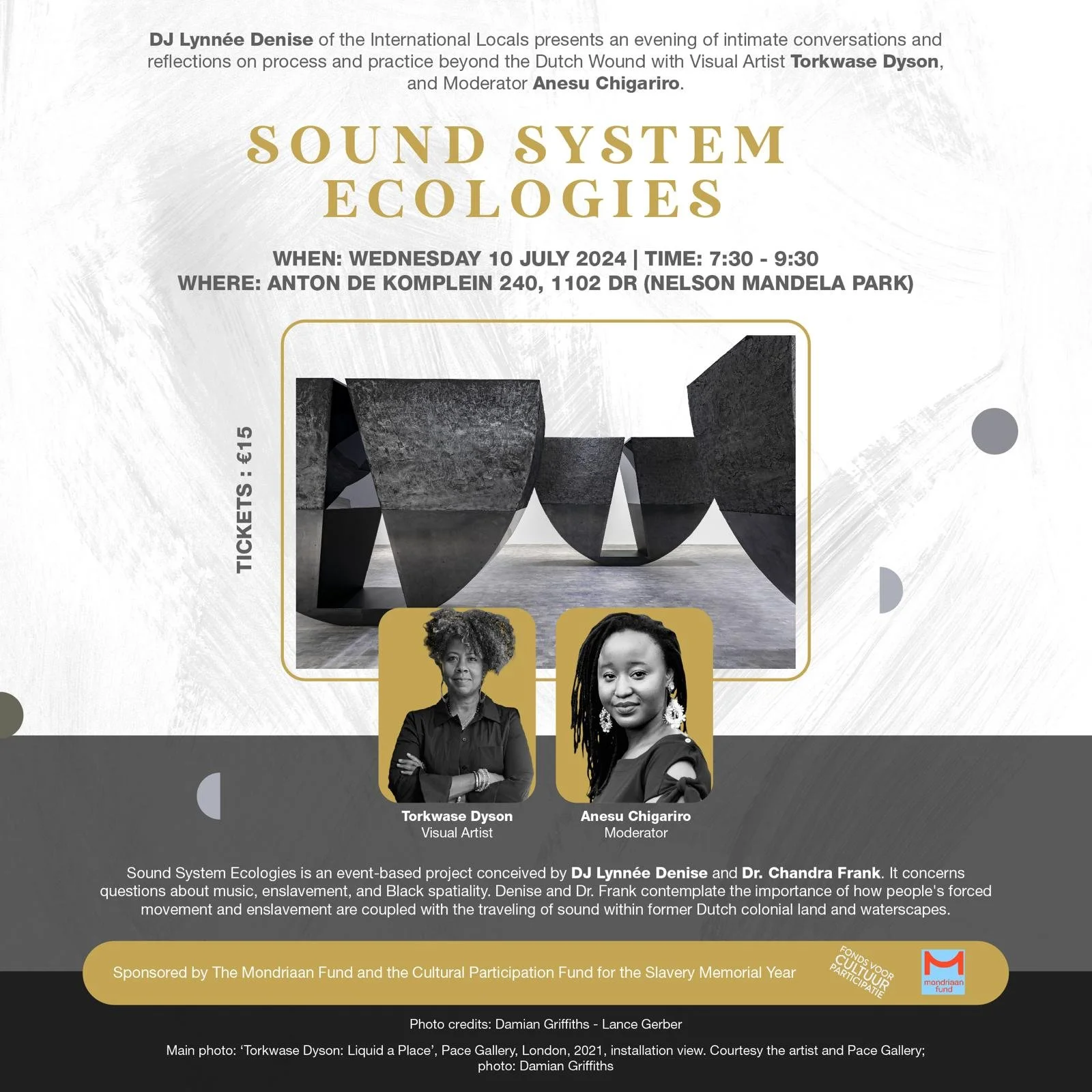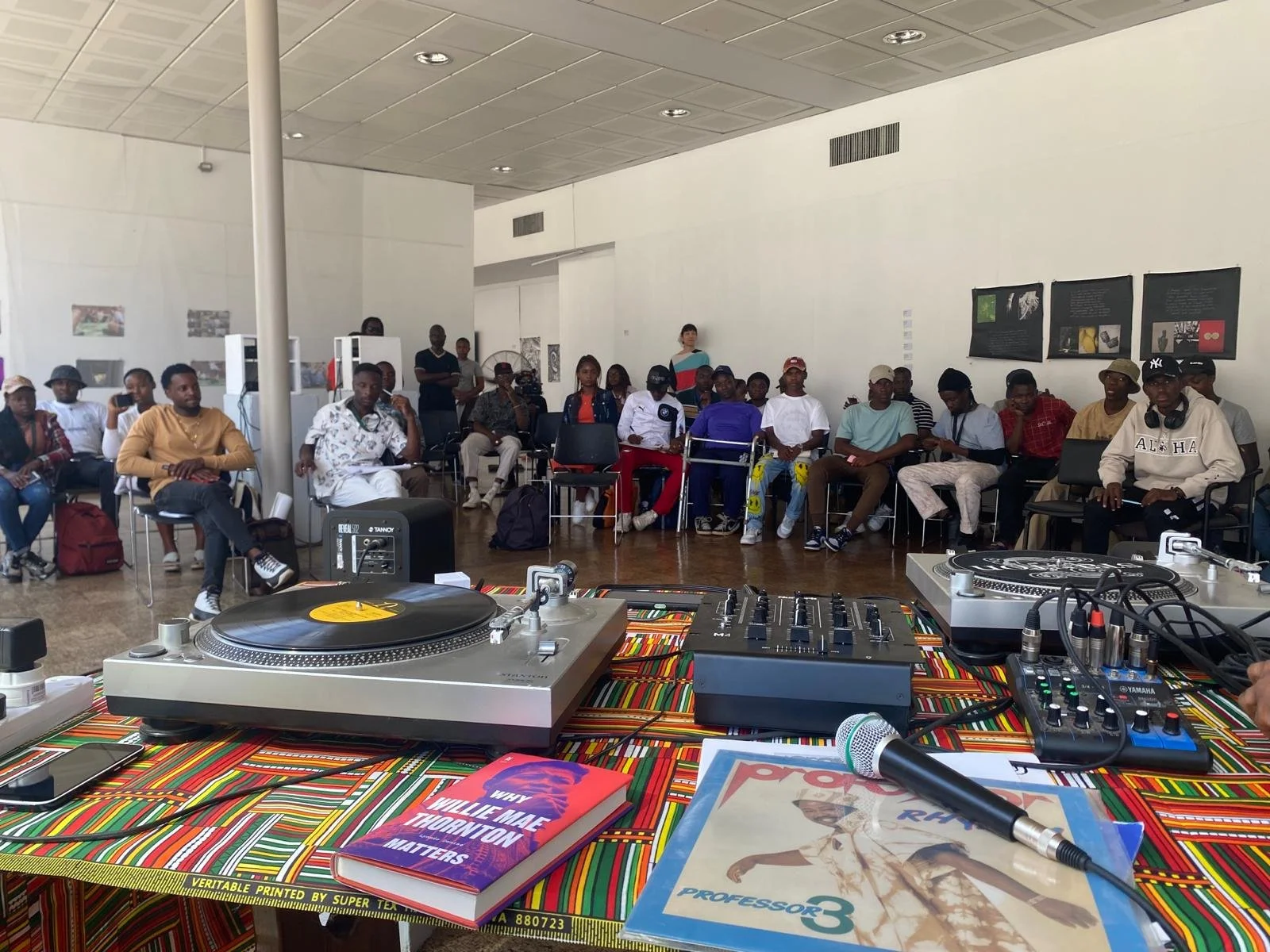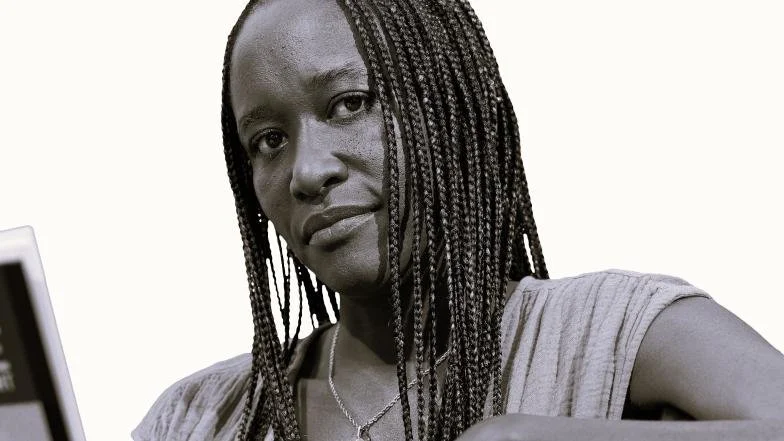
Sound System Ecologies was funded by the Mondriaan Fund and the Cultural Participation Fund to increase the level of knowledge and awareness of the Dutch role in the history of slavery and its repercussions in the present.
Conceived by DJ Lynnée Denise and Dr. Chandra Frank, Sound System Ecologies is concerned with questions pertaining to music, enslavement, and Black spatiality. In this project, we are contemplating the importance of how the forced movement and enslavement of people are coupled with the traveling of sound within former Dutch colonial land and waterscapes. Honing into the intricate ways music and ecology are connected, this project brings a unique perspective to the history of slavery within the Dutch Kingdom. Through listening sessions, public conversations, and film screenings, we will map the roots and routes of the Dutch colonial hand in the social engineering of slavery, apartheid, and colonialism. In doing so, we collectively learn how sound, music, culture, and ecology interrupted the colonial grammar of space. Drawing on our transnational expertise and research, we will explore sound and ecologies from multiple geographies, such as Suriname, the Dutch Caribbean, and South Africa.
Curated conversations on place, practice, and process beyond the dutch wound
-

Feat: Editor and Independent Scholar Anesu Chigariro and Visual artist Torkwase Dyson at the Black Archives Amsterdam
Moderated by Anesu Chiagariro, the first Sound Systems Ecology event began with a brief exploration of the shared histories of Black life in the United States, South Africa, and Zimbabwe, acknowledging but not limiting the audience to the persistent afterlives of colonialism and enslavement that shape the contemporary experiences of Black women. The dialogue between renowned visual artist Torkwase Dyson and Chigariro was generative in that it touched briefly on how artistic practice may be shaped by, respond to, or resist the manifestations of the Dutch Wound. Anesu’s line of questions allowed for the conversation to be guided by what Lynnée Denise calls 'listening as witnessing,' a concept that emphasizes the role of sound as testimony and a generative site within Black ecological resistance. The Bijlmer’s Black Archives hosted the event in July 2025
-
Listening Session as Performative Research in Zimbabwe with Tinofireyi Zhou at the National Gallery of Zimbabwe and South Africa
Sound System Ecologies was a groundbreaking initiative that explored the intricate connections between music, visual culture, and ecology concerncing the Dutch colonial presence in the world. The public conversations and curatorial presentations began with a three-month field research project funded by the Mondriaan Fund Open Call Slavery Memorial Year Grant (2023–2024). DJ Lynnée Denise built a network of Southern African artists, scholars, and writers to initiate a dialogue that would prevent the extractive elements of field research and, instead, create an environment of cultural exchange. The photo above was taken at a talk with Lynnée Denise and Tinofireyi Zhou hosting a listening session at the National Gallery of Zimbabwe (Harare) in Jan 2024
-

Feat: Academic Researcher, author, and poet Uhuru Portia Phalafala and Director of Kunstinstituut Melly Gabi Ngcobo at the West Indisch Huis
Sound System Ecologies calls attention to the roots and routes of the Dutch colonial machine. More importantly, it lingers in the practices that move those impacted beyond singular trauma-informed narratives of survival and cultural reaction. In doing so, DJ Lynnée Denise selected collaborators who think through how sound, music, visual culture, architecture, and ecology interrupt the colonial grammar of space. This event included a series of film screenings and live listening sessions featuring panelists who shared selections from their collections. The event was hosted at the West Indisch Huis, the historical venue known for its relationship to the initiation of the Dutch Atlantic Slave trade in September 2024.










